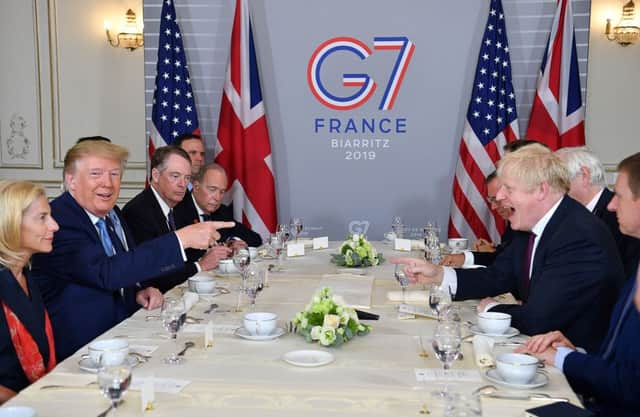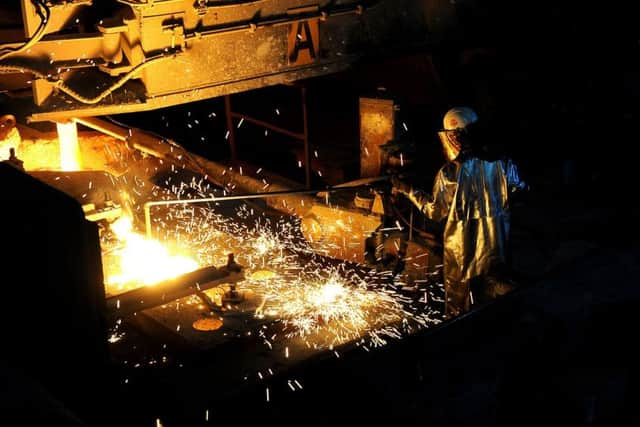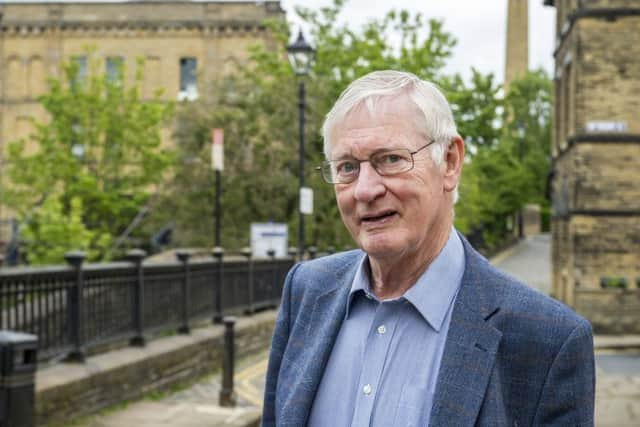Brexit means following Donald Trump’s lead - not taking back control: William Wallace


But in many other ways the UK is losing control. Hopes that British Steel, the remnant of a once-great national industry, may be rescued from closure rest on the Turkish military pension fund, which may be willing to take it over after its previous owner – Tata Industries, the Indian conglomerate – had withdrawn.
The West Coast main line, together with the future HS2, are to be run by a consortium that includes Italian state railways. Huawei, a Chinese company with links to the Chinese state, is providing key components for the next UK-wide wifi network, playing a role that used to be provided by British Post Office engineers and then by British Telecom.
Advertisement
Hide AdAdvertisement
Hide AdOther elements of our rail and bus network are managed by state companies from Germany and the Netherlands; those of us who travel on the East Coast Main Line will have noticed the DB (for Deutsche Bundesbahn) logo on diesel engines pulling freight trains.


Water and electricity, services provided by municipal authorities like Bradford and Leeds before Labour’s nationalisation, are now largely owned by foreign investors. Our auto industry is almost entirely dependent on decisions taken in headquarters in the USA, Germany, France, Japan and India; we cannot expect their owners to put British interests before other priorities if the British economy runs into further difficulties.
There’s a fundamental contradiction in demanding absolute political control of British sovereignty while accepting that more and more of Britain’s economic assets have been sold into foreign ownership.
Advertisement
Hide AdAdvertisement
Hide Ad

Harold Macmillan remarked of his Conservative successors’ willingness ‘to sell off the family silver’ in order to finance tax cuts, without thinking about the long-term sustainability of our economy.
Margaret Thatcher’s programme of privatisation rested on the belief that private suppliers of public services would be far more efficient than public or non-profit bodies; though the profit from these substantial sell-offs fed into current government spending rather than reinvestment in infrastructure for public housing, transport, health and education.
That has allowed Britain to hold to a lower percentage of taxation in the national economy than our European neighbours, but has left us paying substantial dividends to foreign companies, widening the deficit in the UK’s balance of payments which contributes to the fall in the external value of the pound.
Advertisement
Hide AdAdvertisement
Hide AdThe political promise of Brexit is that we will regain control over our own country. But the economic assumptions of those who have pushed hardest for Brexit has been to shrink the size of the British state, and to open our economy to the full blast of global markets and global finance.


Economists for Britain, one of the components for the Vote Leave campaign, have suggested that Britain can survive without a significant industrial base, through focusing on financial and other services, and tourism.
Many of the major funders of the Brexit campaign, and of the current Conservative Party, are hedge-funders, making their money out of betting on financial trends and breaking up industrial conglomerates, rather than on production or useful services. Many of these financiers, in turn, operate offshore, in the Channel Islands or beyond, thus avoiding UK levels of taxation.
‘Take back control’ was a false promise. Campaigners for Leave wanted Britain to move from the European model of a regulated market with higher taxes and social welfare to the US model of a ‘free market’, lower taxes and higher inequality.
Advertisement
Hide AdAdvertisement
Hide AdPresident Trump has now made the choice clear: he sees Britain’s future not as standing alone but as following the US wherever Washington may lead us.
Sharing sovereignty with our European neighbours, negotiating with them over common regulations, even contributing to shared funds for shared activities, offers the UK more control of its future development than following the twists and turns of American policies, over which we have so little influence.
Lord Wallace of Saltaire is a Lib Dem peer and former minister in the 2010-15 coalition.